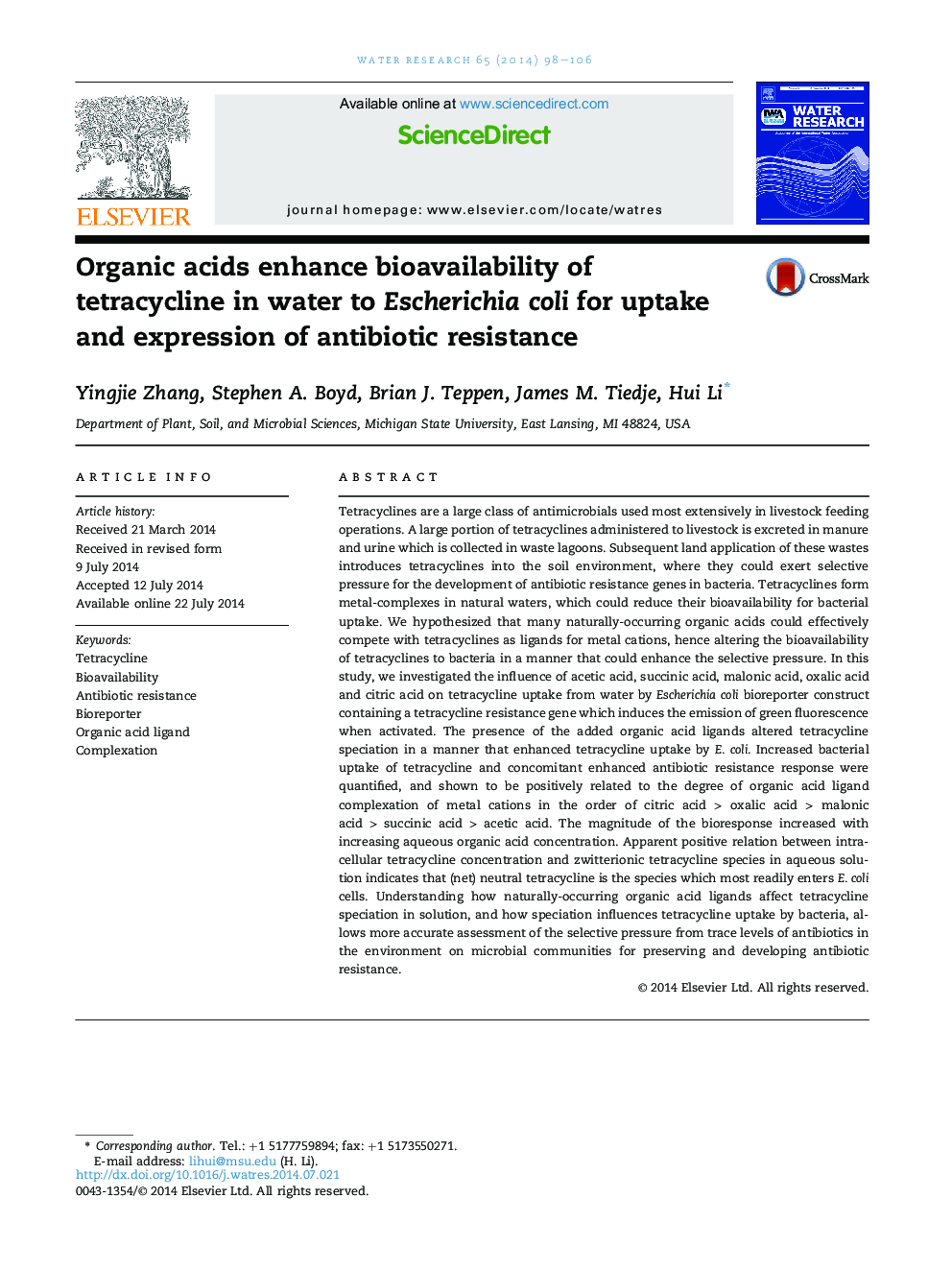| Article ID | Journal | Published Year | Pages | File Type |
|---|---|---|---|---|
| 6366447 | Water Research | 2014 | 9 Pages |
â¢Escherichia coli bioreporter was employed to investigate bioavailability of tetracycline.â¢Organic acid ligands enhance tetracycline uptake by bacteria.â¢Zwitterionic tetracycline is favored species for bacterial uptake.â¢Tetracycline has to enter E. coli cells to evoke antibiotic resistance genes.
Tetracyclines are a large class of antimicrobials used most extensively in livestock feeding operations. A large portion of tetracyclines administered to livestock is excreted in manure and urine which is collected in waste lagoons. Subsequent land application of these wastes introduces tetracyclines into the soil environment, where they could exert selective pressure for the development of antibiotic resistance genes in bacteria. Tetracyclines form metal-complexes in natural waters, which could reduce their bioavailability for bacterial uptake. We hypothesized that many naturally-occurring organic acids could effectively compete with tetracyclines as ligands for metal cations, hence altering the bioavailability of tetracyclines to bacteria in a manner that could enhance the selective pressure. In this study, we investigated the influence of acetic acid, succinic acid, malonic acid, oxalic acid and citric acid on tetracycline uptake from water by Escherichia coli bioreporter construct containing a tetracycline resistance gene which induces the emission of green fluorescence when activated. The presence of the added organic acid ligands altered tetracycline speciation in a manner that enhanced tetracycline uptake by E. coli. Increased bacterial uptake of tetracycline and concomitant enhanced antibiotic resistance response were quantified, and shown to be positively related to the degree of organic acid ligand complexation of metal cations in the order of citric acid > oxalic acid > malonic acid > succinic acid > acetic acid. The magnitude of the bioresponse increased with increasing aqueous organic acid concentration. Apparent positive relation between intracellular tetracycline concentration and zwitterionic tetracycline species in aqueous solution indicates that (net) neutral tetracycline is the species which most readily enters E. coli cells. Understanding how naturally-occurring organic acid ligands affect tetracycline speciation in solution, and how speciation influences tetracycline uptake by bacteria, allows more accurate assessment of the selective pressure from trace levels of antibiotics in the environment on microbial communities for preserving and developing antibiotic resistance.
Graphical abstractDownload high-res image (81KB)Download full-size image
